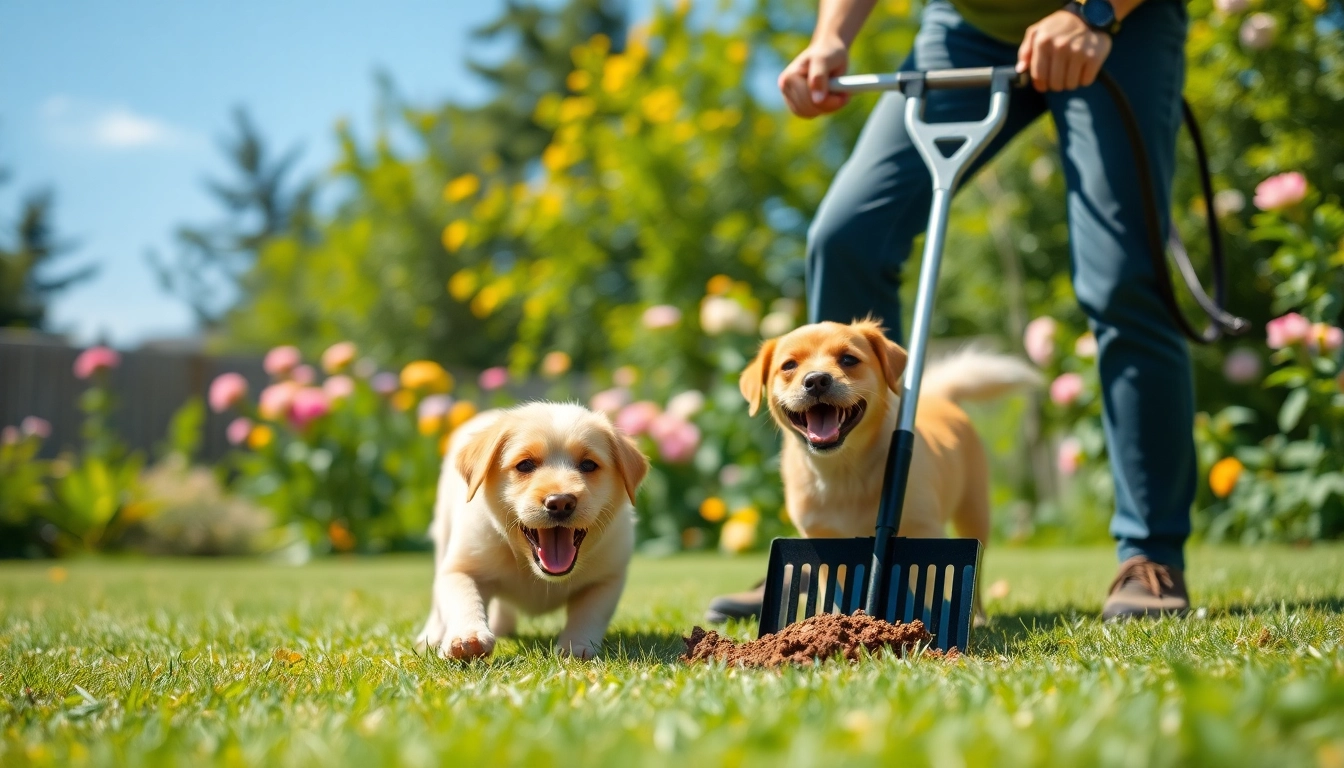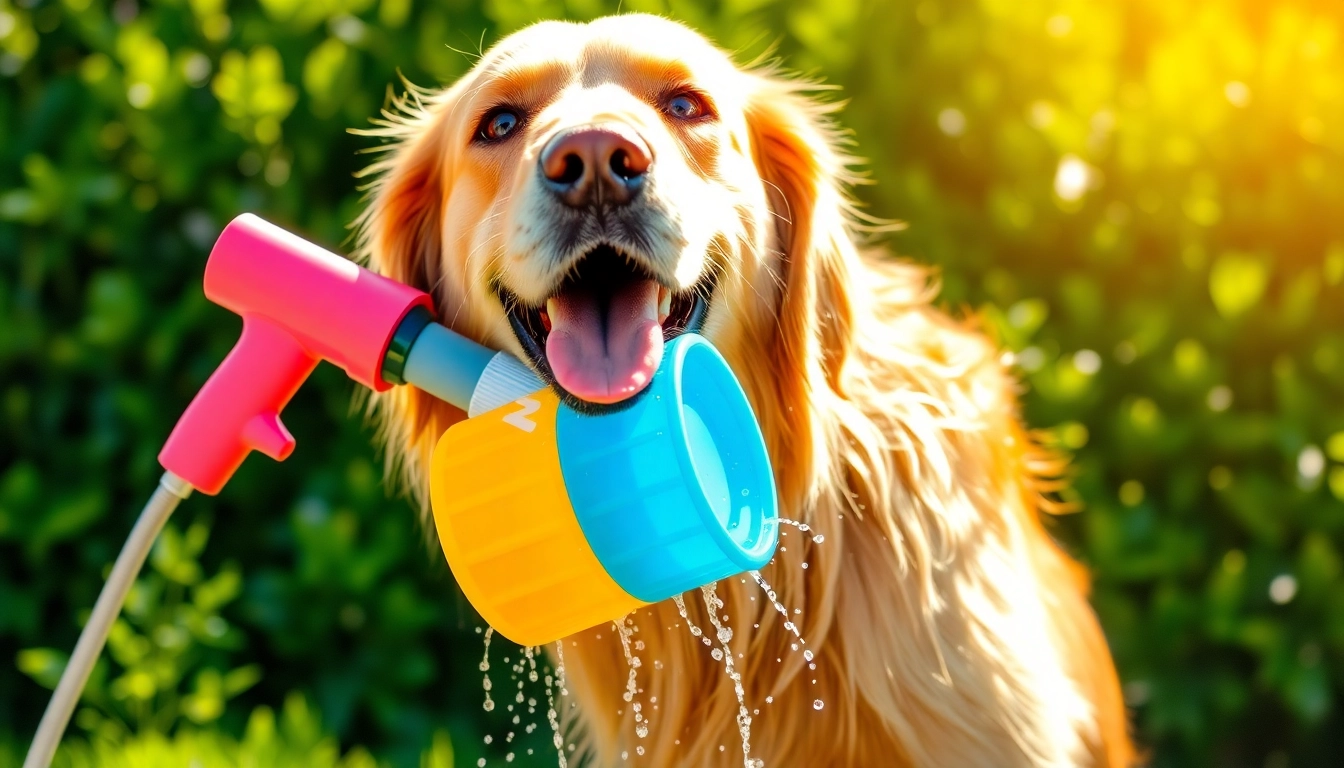Understanding the Importance of Dog Poop Cleanup
Dog ownership comes with numerous responsibilities, one of the most significant being responsible waste management. Effective dog poop cleanup is vital not only for maintaining a clean home environment but also for protecting the health of pets, humans, and the surrounding ecosystem. It’s essential to recognize that neglecting dog waste can lead to serious implications, and understanding these is the first step towards responsible dog ownership.
The Environmental Impact of Neglecting Dog Waste
When pet waste is left unattended in yards and public spaces, it becomes a contributor to environmental pollution. Dog feces contain high levels of nitrogen and phosphorus, nutrients that can lead to water pollution when washed into storm drains during rainstorms. This nutrient overload can cause excessive algae growth in water bodies, resulting in the depletion of oxygen and harming aquatic life. Moreover, the bacteria and parasites found in dog poop can contaminate soil and water, posing risks to both wildlife and humans.
Health Risks Associated with Dog Poop
Beyond environmental concerns, dog waste presents several health risks. It can harbor harmful pathogens such as E. coli, Salmonella, and various parasites like roundworms and hookworms. These pathogens can pose serious health risks to people, particularly young children and those with weakened immune systems. Fecal matter can spread diseases, and direct contact with contaminated surfaces can lead to infections or parasitic infestations. Proper cleanup and disposal help mitigate these risks significantly.
Benefits of Regular Cleanup
Establishing a regular dog poop cleanup routine provides immense benefits. Firstly, it enhances the aesthetic appearance of your yard, creating a pleasant environment for family and guests. Secondly, it contributes to a healthier living space by eradicating potential sources of disease and allergens. Furthermore, routine cleaning promotes responsible pet ownership and fosters a positive image in your community, showcasing your commitment to maintaining a clean environment.
Essential Tools for Effective Dog Poop Cleanup
Equipping yourself with the right tools can greatly enhance your efficiency in dog poop cleanup. The right tools not only streamline the process but also ensure that you are cleaning up in an environmentally friendly manner.
Types of Pooper Scoopers and Their Features
There are several types of pooper scoopers available that cater to various needs:
- Traditional Scoopers: These typically consist of a scoop and a handle and are effective for yard use.
- Bag-Attached Models: Some scoopers come with bags attached, providing a straightforward way to collect waste and dispose of it immediately.
- Long-Handled Scoopers: Ideal for those who prefer to maintain distance from the waste, these extendable scoopers can reduce the need to bend down.
- Rakes and Bins: For those with larger yards, using a rake in combination with a bin can make cleanup easier and more efficient.
Best Waste Disposal Practices
Proper disposal of dog waste is crucial for effective cleanup. Here are a few best practices for waste disposal:
- Using Biodegradable Bags: Choose biodegradable bags that break down more easily in landfills, reducing environmental impact.
- Disposing in Trash: Always place dog waste in sealed bags before throwing it in the trash to avoid odor and contamination.
- Composting: Advanced dog owners might opt to compost dog waste using specialized composting systems, which can turn waste into usable compost. However, this requires careful handling to avoid pathogens.
Recommended Cleaning Supplies
Aside from a pooper scooper, other supplies can make the cleanup process smoother and more effective:
- Gloves: Always wear disposable gloves to maintain hygiene during cleanup.
- Hand Sanitizer: Keep hand sanitizer handy for quick cleaning after disposing of waste.
- Water Hose or Spray Bottle: For stubborn messes, a hose or spray bottle can help clean surfaces after picking up waste.
Developing a Regular Cleanup Routine
Creating a cleanup routine is key to staying on top of dog waste management, helping to maintain a clean environment and prevent health hazards.
Factors to Consider for Scheduling Cleanups
The frequency of cleanups depends on several factors:
- Number of Dogs: More dogs mean more waste; thus, frequent cleanups are necessary.
- Property Size: Larger outdoor areas may require more thorough cleanings, potentially adjusting the frequency.
- Seasonal Conditions: During rainy seasons, poop can wash away, but it’s essential to clean it quickly to avoid mud and contamination.
Tips for Consistency and Maintenance
Consistency is key in establishing a routine. Here are some tips to help you stay dedicated:
- Set a Schedule: Choose specific days and times for cleanups, treating it like any other important appointment.
- Involve Family Members: Share cleanup responsibilities among family members, teaching children about the importance of pet care.
- Use Reminders: Utilize mobile apps or calendar reminders to interval notifications for cleanups.
Incorporating Cleanup into Dog Walking
Pairing dog walks with cleanup can streamline the process and ensure regular maintenance. Carry a portable waste bag holder that attaches to your dog’s leash. Clean up after your pet immediately during walks to keep public spaces clean and prevent the buildup of waste in your own yard.
Hiring Professional Dog Poop Cleanup Services
While DIY cleanup is effective, sometimes the convenience of hiring professionals can be appealing, particularly for busy pet owners.
When to Consider Professional Help
Certain situations warrant considering professional dog poop cleanup services:
- Large Yards: For spacious properties, professional services can cover more ground quickly.
- Physical Limitations: If you have mobility issues or health concerns, professional services can relieve you of the burdens of cleanup.
- Multiple Pets: Owners of multiple dogs may benefit greatly from the efficiency of a service.
What to Look for in a Service Provider
Before hiring a professional service, ensure they meet the following criteria:
- Experience and Reviews: Look for companies with verified reviews and extensive experience in the field.
- Services Offered: Check if they provide additional amenities, like waste removal stations.
- Pricing Structure: A clear and fair pricing structure will ensure transparency.
A Cost Comparison of DIY vs. Professional Cleanup
The costs associated with dog poop cleanup can vary significantly between DIY and professional services. DIY methods primarily involve purchasing tools and supplies, while professional services typically charge monthly or per visit fees. Below is a basic comparison:
- DIY Costs: Initial costs for tools are about $30-$100, with recurring costs for bags and other supplies.
- Professional Services: Prices range from $15 to $50 per visit, depending on property size and service frequency. Monthly packages can offer savings for regular cleanups.
Real-Life Success Stories and Testimonials
Learning from the experiences of others can provide insights and motivation for maintaining a disciplined approach to dog waste cleanup.
Before and After Cleanup Case Studies
Several case studies demonstrate the transformative effect of professional dog poop cleanup services on homeowners and their properties. For example, one Nashville homeowner reported a drastic reduction in yard odors and increased enjoyment in their outdoor living space after hiring a local service.
Customer Feedback on Cleanup Services
Customers often express gratitude for professional services that save them time and physical effort. Reviews frequently highlight the reliability and thoroughness of cleanup crews, essential factors that contribute to customer satisfaction.
Lessons Learned from Pet Owners
Pet owners often mention the importance of proper waste management skills instilled in children, educating future generations on animal care and environmental responsibility. Many also recognize the collective benefits experienced when all pet owners share the responsibility of keeping their community clean.



